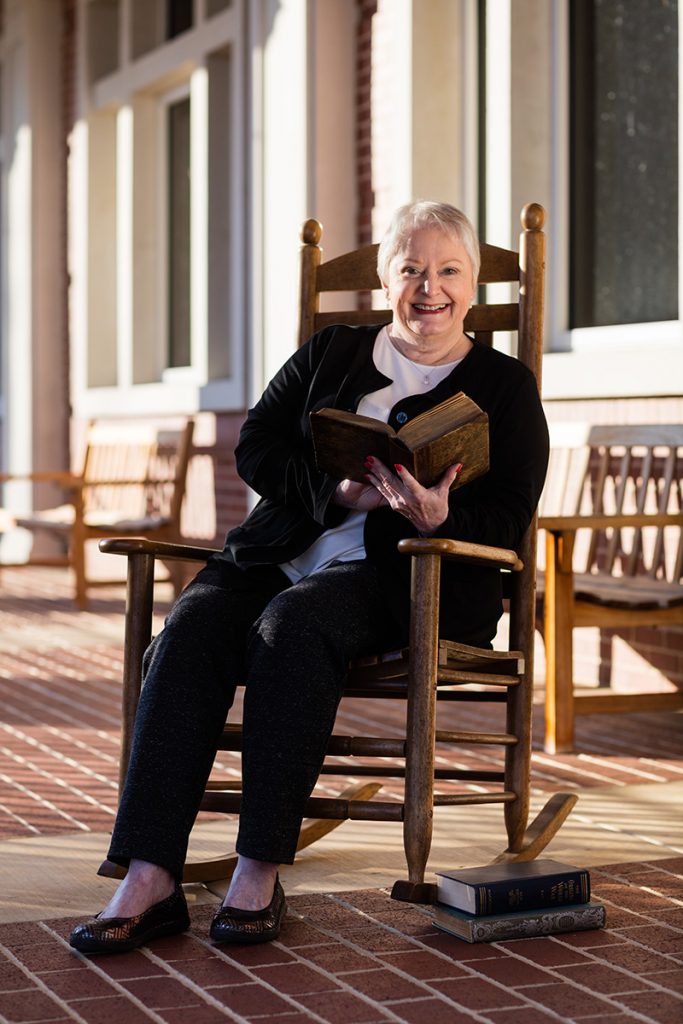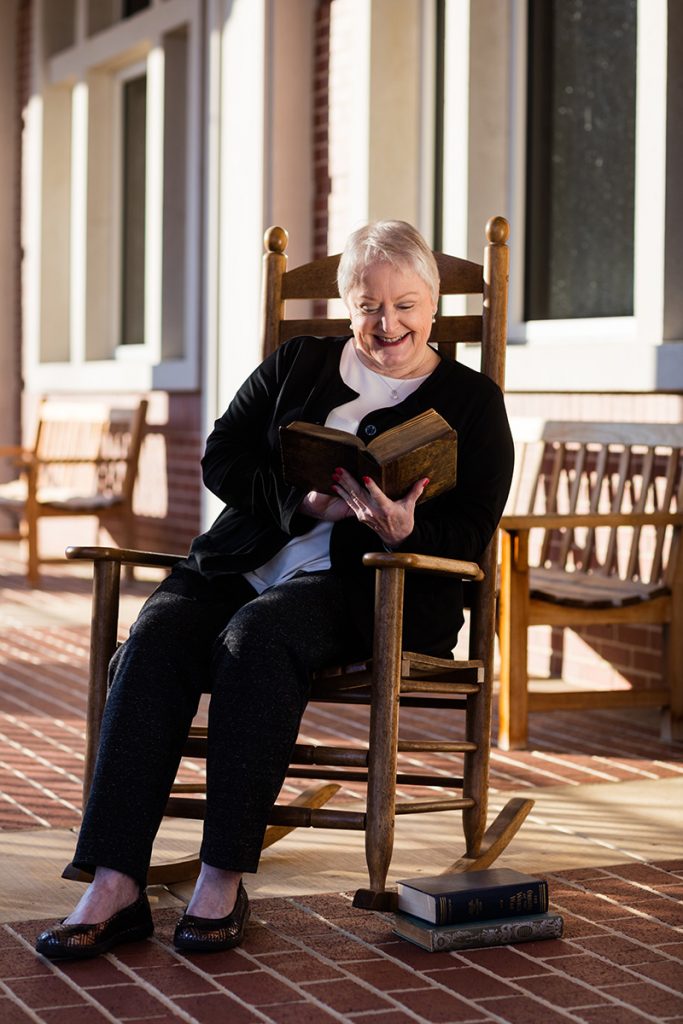Lessons From a Front Porch

The most important classroom of Dr. Jan Jenkins’ life was a screened-in porch in Port Arthur, Texas.
It was there amidst the warm breezes of the Gulf Coastal Plains that she began her lifelong study of history under the tutelage of a gentleman who didn’t read his stories in a book. He lived them.
“When I was a little, little kid…like six and seven…my very best friend was 80 years older than I was,” said Jenkins. “He lived next door with his daughter and granddaughter, and he would tell me wonderful stories. He was an Englishman who had been a sailor, which is a really weird best friend for a little kid, but he was wonderful.
“He was blind at the time, and I would sit on the floor by his rocking chair,” continued Jenkins. “He would tell me stories about when he came to Texas in the early 1900s. He could remember being on a ship at sea when they heard through a foghorn from another ship that Queen Victoria had died. By the time I was seven, I was hooked on history. I’m an English historian, and I think Mr. Baker and all his wonderful stories had a lot to do with that.”
It was not, however, a straight line from those front porch lessons to Jenkins’ more than two-decade career on the history faculty at Arkansas Tech University.
She earned a Bachelor of Arts degree from the University of Texas at Dallas and began her career in education as a high school biology teacher and basketball coach.
“I didn’t think I was a very good biology teacher…in fact, I’m sure I wasn’t a very good biology teacher,” said Jenkins. “History had always been my first love, so I decided I was going to pursue a master’s degree in history.”
She achieved that goal at the University of North Texas and remained on the Denton campus to earn a Doctor of Philosophy degree in history.

Jenkins joined the history faculty at the University of Arkansas-Monticello in 1992 and stayed there until a history faculty position became available at Arkansas Tech in 1997.
“I liked everyone [at ATU],” said Jenkins. “Everybody was down-to-earth. This looked like a warm, welcoming place. I’ve never regretted coming to Tech. I’ve always enjoyed being part of the Tech community. The 22 years I’ve been here have just zipped by.”
She has invested that time helping ATU students gain a greater understanding of how their world changed and evolved between 1800 and 1939, which is her era of primary expertise.
“History is all stories, and pretty much everyone loves a story,” said Jenkins. “Even students who are not particularly interested in history, sometime during the semester there’s a story you are telling that they find interesting. A lot of people come in to survey classes, particularly, and think ‘oh no, I’m going to have to memorize dates.’ On my exams, if someone needs a date, I’ll give it to them. As long as you know the general chronology, dates are not history. Dates are just numbers. What I would really like for all of my students to be able to do is connect the dots. If something happened in this part of the world, it’s wonderful when they can see that it had a direct effect on that part of the world.”
In addition to serving as a professor of history, Jenkins has provided leadership for the University Honors program at ATU since 1998. She pointed out that she loves her honors students not because they are always perfect and not because they are always prepared for class but because they bring color to her life.
“They’re almost always funny and entertaining,” said Jenkins. “Kids who have an overachiever’s outlook can also come up with overachievers’ ways of getting themselves into a tangle, but I love it. I think that’s had a lot to do with why I have enjoyed being at Tech so much. There’s always something I need to be thinking about or doing. I feel like the old woman who lived in the shoe…but it’s very worthwhile.”
University Honors took on a new role in fall 2018 when it inherited primary responsibility for the food recovery program to benefit local service organizations and the Green and Gold Cupboard, a service project that assists members of the ATU community facing food insecurity.
Both programs were established by the Because We Can student organization, which remains an active partner in the initiatives.
“It’s been really eye-opening for our students to see how many people deal with food insecurity,” said Jenkins. “It’s also been eye-opening to me and the assistant directors, Dr. Emily Hoffman and Dr. Jamie Earls. It has been wonderful for our students to be able to recognize those issues while they are in a position to be able to do something about it. A program that does not change or does not face new challenges dwindles into nothing. We never want that to happen to University Honors.”
The curiosity that was sparked in a child on that screened-in porch continues to drive Jenkins to pay forward the lessons she has learned.
“I love Tech, I enjoy the students and I enjoy teaching,” said Jenkins. “I have never been able to imagine any more magical place to be than a college campus. All things are possible here. I think [Mr. Baker] would be pleased.”
